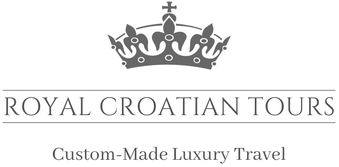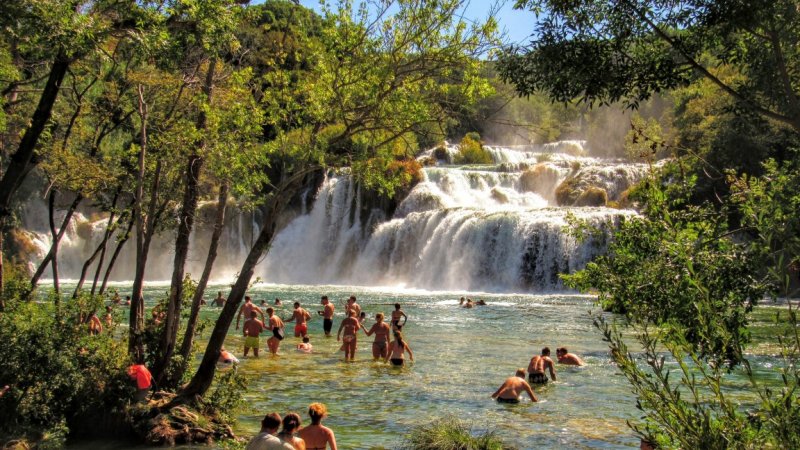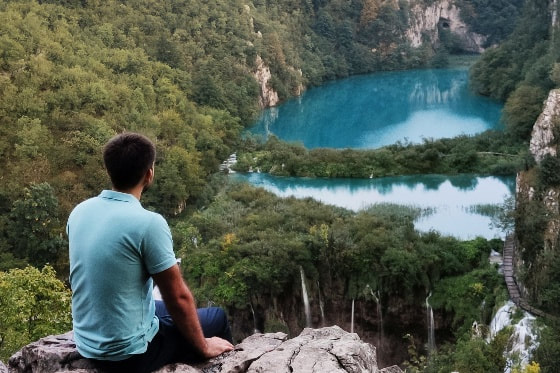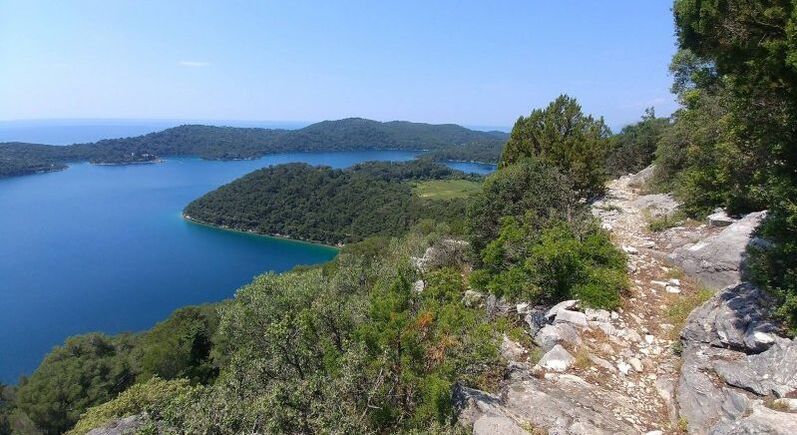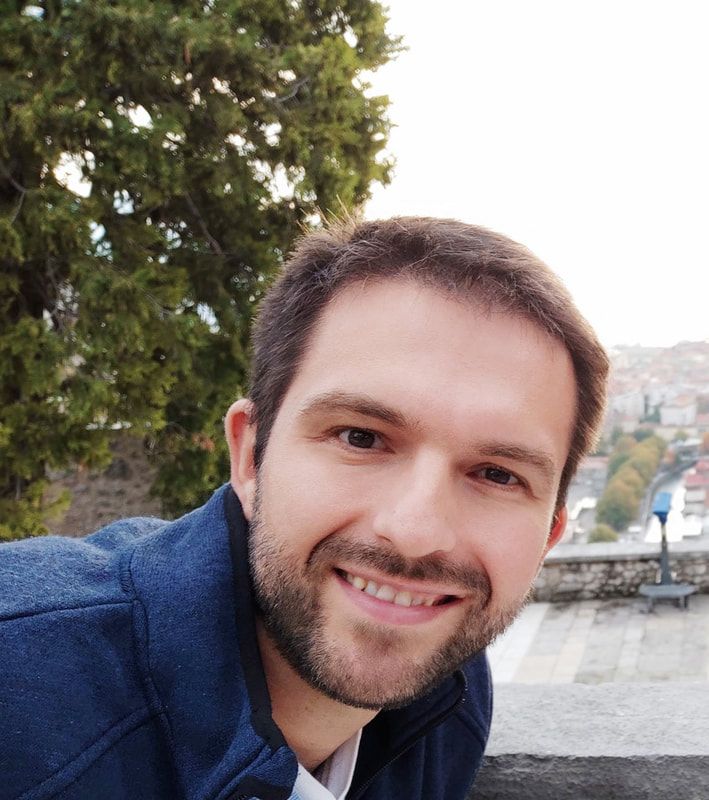The Croatian portal www.24sata.hr published an article about working hours of Croatian National Parks and nature parks during specific situations with COVID 19. Here we've translated it into English - the article in Croatian can be found here: https://www.24sata.hr/news/ovako-od-sutra-rade-nacionalni-parkovi-kafici-trgovacki-centri-692269
By the decision of the Government of the Republic of Croatia, 8 national parks and 11 nature parks will start operating on Monday, May 11.
By the decision of the Government of the Republic of Croatia, 8 national parks and 11 nature parks will start operating on Monday, May 11.
Kopački Rit Nature Park
Nature Park Kopački Rit will reopen its doors to visitors on the 11th of May. The visit to the park will take place in compliance with all measures of physical distance and hygiene standards, and fishermen will be able to go on the water again with the purchase of daily and annual permits at the Reception Center in Kopačevo. Visitors are especially warned that access to construction sites at the Sakadaš Lake pier and in the Tikveš castle complex is in no way allowed for their own safety. More information in this link.
Papuk Nature Park
Papuk Nature Park opens its doors on May 11th. Tickets at a symbolic price of 10 kuna can be purchased every day from 07:00 to 19:00, and work in the park will be carried out in accordance with the instructions of the competent services. The Park will subsequently inform all visitors about the operation of the Duboka Adrenaline Park, the Duboka Resting Camp and the Pannonian Sea House. More information in this link.
Brijuni National Park
Brijuni National Park opens to individual visitors on Monday, May 11th. The method of work will be carried out in accordance with the instructions of the Government of the Republic of Croatia, the Ministry of Environmental Protection and Energy and the Civil Protection Headquarters. Organized trips to Veliki Brijun will start again with the guidance of expert guides, at more promotional ticket prices of 95 kuna for adults and 50 kuna for children aged 4-14. Excursion times are 9.00-11.00, 11.30-14.00 and 13.30-16.00. Visitors will be able to tour Veliki Brijun on their own, without an expert guide, using the new mobile application for guiding visitors to the Brijuni Pocket Guide. More information in this link.
Northern Velebit National Park
Northern Velebit National Park and the Velebit House Visitor Center are open to visitors from the 11th of May. The working hours of the Babić Siča entrance are Monday to Sunday from 08:00 to 16:00, and the Visitor Center of the Velebit House from Tuesday to Sunday from 08:00 to 16:00. In accordance with the measures of maintaining physical distance, for now a visit to the Park and the House of Velebit is possible only for individual visitors. Group visits and workshops are currently not possible. In the Visitor Center of the House of Velebit, it is necessary to ensure physical distance between visitors and between visitors and employees, and there can be a max of 25 people in the center at the same time. More information here.
Velebit Nature Park
Velebit Nature Park opens to visitors on May 11th. As measures prohibiting groups of more than 5 people are still in force, individual visitors are allowed to visit the Park, and organized groups will be allowed in accordance with the instructions of the Civil Protection Headquarters of the Republic of Croatia and the Croatian Institute of Public Health. Zavratnica Bay will be open every day from 11 am to 7 pm, and when visiting the Park, it is necessary to adhere to the measures of physical distance and prescribed hygiene standards. More information in this link.
National Park Plitvice Lakes
Plitvice Lakes National Park opens its doors to its visitors on May 11th, 2020. The working hours of the park are from 08:00 to 19:00, while the purchase of tickets is possible until 17:00. There is only a short boat line (P1-P2) from 08:30 to 19:00, while the panoramic train does not run. In accordance with the measures for maintaining physical distance, temporary programs for touring the Park have been created, and the catering facilities Kozjačka draga, Kupalište, Labudovac and Vučnica have been opened. More information here.
Vrana Lake Nature Park
Vrana Lake Nature Park is open to visitors from Monday, May 11th. In accordance with the current instructions of the Civil Protection Headquarters of the Republic of Croatia and the Croatian Institute of Public Health, visits to the Park are allowed only to individual visitors. Visits of organized groups will be allowed in accordance with the new decisions and instructions of the Civil Protection Headquarters of the Republic of Croatia and the CNIPH. More information can be found here.
Telašćica Nature Park
As part of the gradual easing of restrictions related to COVID-19, by the decision of the Government of the Republic of Croatia, the Telašćica Nature Park will be reopened to visitors from Monday, the 11th of May, 2020. As measures prohibiting groups of more than 5 people are still in force, visits to the Park are allowed to individual visitors. Organized groups will be allowed in accordance with the instructions of the Civil Protection Headquarters of the Republic of Croatia and the Croatian Institute of Public Health. The visit to the park will take place in compliance with all measures of physical distance and hygiene standards. More information following this link.
Krka National Park
Krka National Park is reopened to visitors from Monday, May 11th, at a promotional ticket price of 50 kuna for adults and 25 kuna for children and young people aged 7 to 18. Children up to 7 years old have free entrance. More information can be found here.
Biokovo Nature Park
From May 11th, the Biokovo Nature Park reopens its doors to visitors. As measures prohibiting groups of more than 5 people are still in force - individual visitors are allowed to visit the Park and for organized groups will be allowed in accordance with the instructions of the Civil Protection Headquarters of the Republic of Croatia and the Croatian Institute of Public Health. The visit to the park will take place in compliance with all measures of physical distance and hygiene standards. More info here.
Mljet National Park
NP Mljet opens its doors to visitors on May 11th, with promotional ticket prices until June 18, 2020, visitors will have the opportunity to visit our oldest marine protected area. In order to make the park more accessible primarily to domestic visitors, the ticket price in the promotional period is 50 kuna for adults and 30 kuna for pupils and students. Admission for children under 7 is still free. The ticket also includes a ride on an electric boat and a visit to the island of St. Mary in the heart of the Great Lakes. Click here for more info.
Lastovo Islands Nature Park
As part of the gradual easing of restrictions related to COVID-19, by the decision of the Government of the Republic of Croatia, the Lastovo Islands Nature Park will be reopened to visitors from Monday, the 11th of May. The visit to the park will take place in compliance with all measures of physical distance and hygiene standards. More information in this link.
Rules For Park Visitors
As there is still a risk of transmitting COVID-19, visitors are asked to adhere to measures of physical distance and hygiene standards:
Physical distance outdoors: it is necessary to maintain a physical distance of 1.5 meters between people. In doing so, a child's companion and the child do not have to maintain a physical distance. Care should be taken to avoid grouping in one place.
It is recommended to disinfect your hands more often and to avoid touching your face, mouth and eyes with dirty hands.
Adhere to all general and hygienic measures of the CNIPH:
Wash your hands as often as possible, and always, after using the toilet, after cleaning your nose and always when your hands look dirty; you should use warm running tap water and soap to wash your hands, and if this is not possible at a given time, you can also use an alcohol-based disinfectant (at least 60% ethyl alcohol) which should be rubbed well into your palms.
When you cough and sneeze, cover your mouth and nose with an elbow or tissue, which you then throw in the trash can with a lid and wash your hands. When coughing and sneezing, turn your face away from other people.
Avoid touching your eyes, nose and mouth, as this way the virus can enter the body.
Wearing a medical mask is mandatory if you have respiratory symptoms. Hand hygiene (washing or disinfection) is mandatory before and after removing the mask from the face.
In order to protect yourself and others, it is recommended to use masks and gloves, especially indoors and in places where a large number of people gather (info point, toilet, etc.).
Avoid shaking hands, hugging and kissing and keep a distance of at least 2m when talking. If you have symptoms of respiratory illness (cough, sneezing, sore throat, fever, shortness of breath): stay home and call the phone (or e-mail) of your chosen doctor.
We recommend that people over the age of 65 and people with chronic noninfectious diseases avoid visiting and entering crowded public areas or places.
--------------------------
Physical distance outdoors: it is necessary to maintain a physical distance of 1.5 meters between people. In doing so, a child's companion and the child do not have to maintain a physical distance. Care should be taken to avoid grouping in one place.
It is recommended to disinfect your hands more often and to avoid touching your face, mouth and eyes with dirty hands.
Adhere to all general and hygienic measures of the CNIPH:
Wash your hands as often as possible, and always, after using the toilet, after cleaning your nose and always when your hands look dirty; you should use warm running tap water and soap to wash your hands, and if this is not possible at a given time, you can also use an alcohol-based disinfectant (at least 60% ethyl alcohol) which should be rubbed well into your palms.
When you cough and sneeze, cover your mouth and nose with an elbow or tissue, which you then throw in the trash can with a lid and wash your hands. When coughing and sneezing, turn your face away from other people.
Avoid touching your eyes, nose and mouth, as this way the virus can enter the body.
Wearing a medical mask is mandatory if you have respiratory symptoms. Hand hygiene (washing or disinfection) is mandatory before and after removing the mask from the face.
In order to protect yourself and others, it is recommended to use masks and gloves, especially indoors and in places where a large number of people gather (info point, toilet, etc.).
Avoid shaking hands, hugging and kissing and keep a distance of at least 2m when talking. If you have symptoms of respiratory illness (cough, sneezing, sore throat, fever, shortness of breath): stay home and call the phone (or e-mail) of your chosen doctor.
We recommend that people over the age of 65 and people with chronic noninfectious diseases avoid visiting and entering crowded public areas or places.
--------------------------
If you’re interested in reading a few of our other posts about Croatia:
- 25 Strange Things Croatians Do (And Would Never Do)!
- Croatian Culture, Etiquette & Social Norms: A Complete Guide!
- My Kids Don't Speak English: Raising Bilinguals is Tough!
- 15 Places in Croatia You've Probably Never Heard Of!
- 50 Insanely Spectacular Photos of Croatia: Start Packing!
- Croatia’s Best 20 Beaches: Sandy, Pebbly & Hidden Gems
- Is Croatia Safe? Read Our 20 Useful Safety Tips for Tourists
- 5 Reasons Croatian Grannies are Cuter than Kittens
- 8 Reasons You Should Never Swim in the Adriatic
- Top 10 Day Trips From Zagreb, Within 1hr Drive
- Croatian Money: KN or EURO, Exchanging $, and Daily Costs
- How I Learned to Speak Croatian as an Adult (in 7 Steps)
- Driving in Croatia (A Helpful Guide With Practical Tips)
- 38 Local Tips & Mistakes to Avoid When Traveling to Croatia
- Travel to Croatia With a Toddler or Baby (From Experience!)
- Tipping in Croatia: A Complete Guide With Suggested Amounts!
- 20 Croatian Habits Everyone Should Adopt
